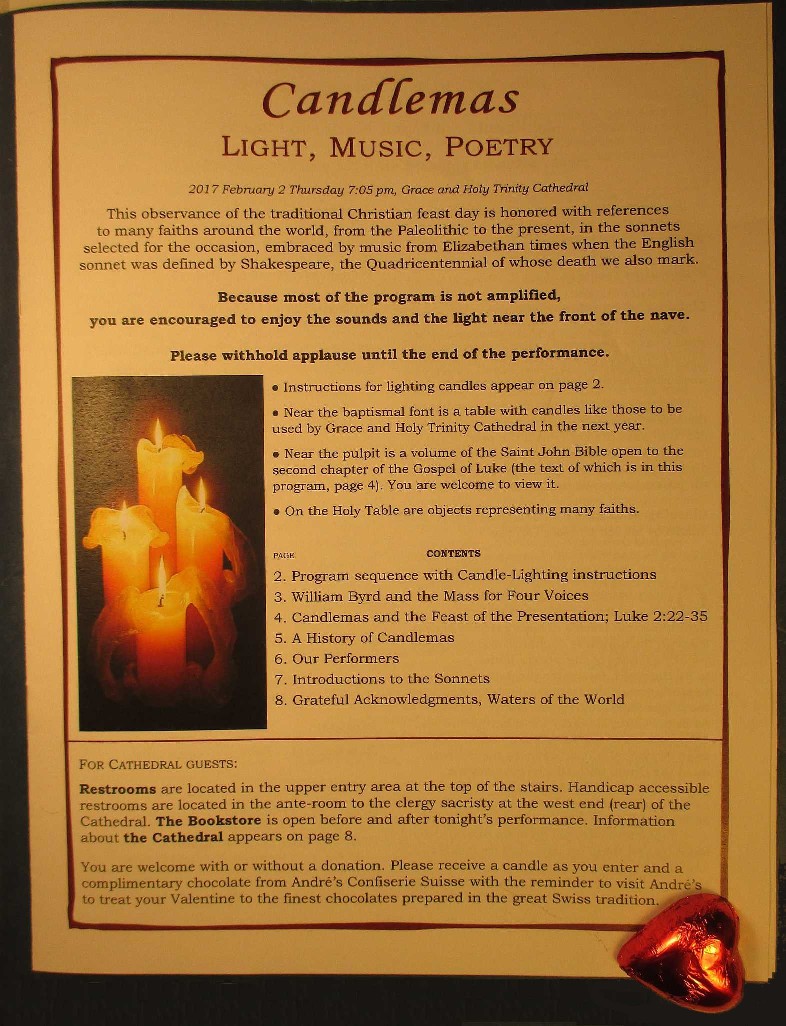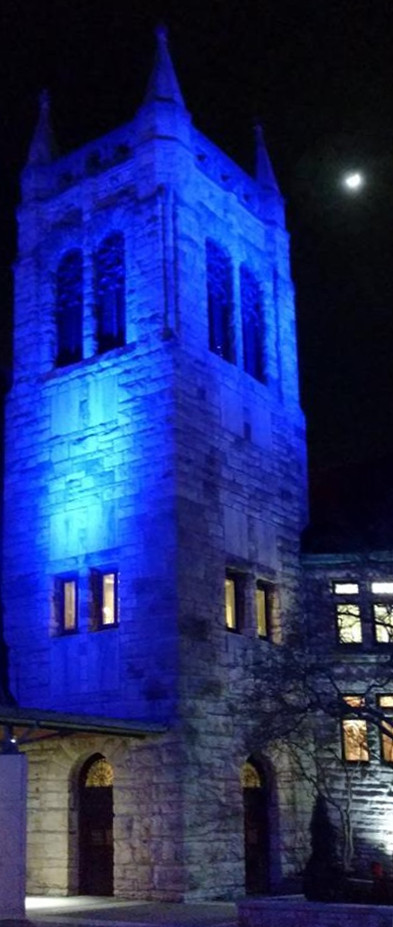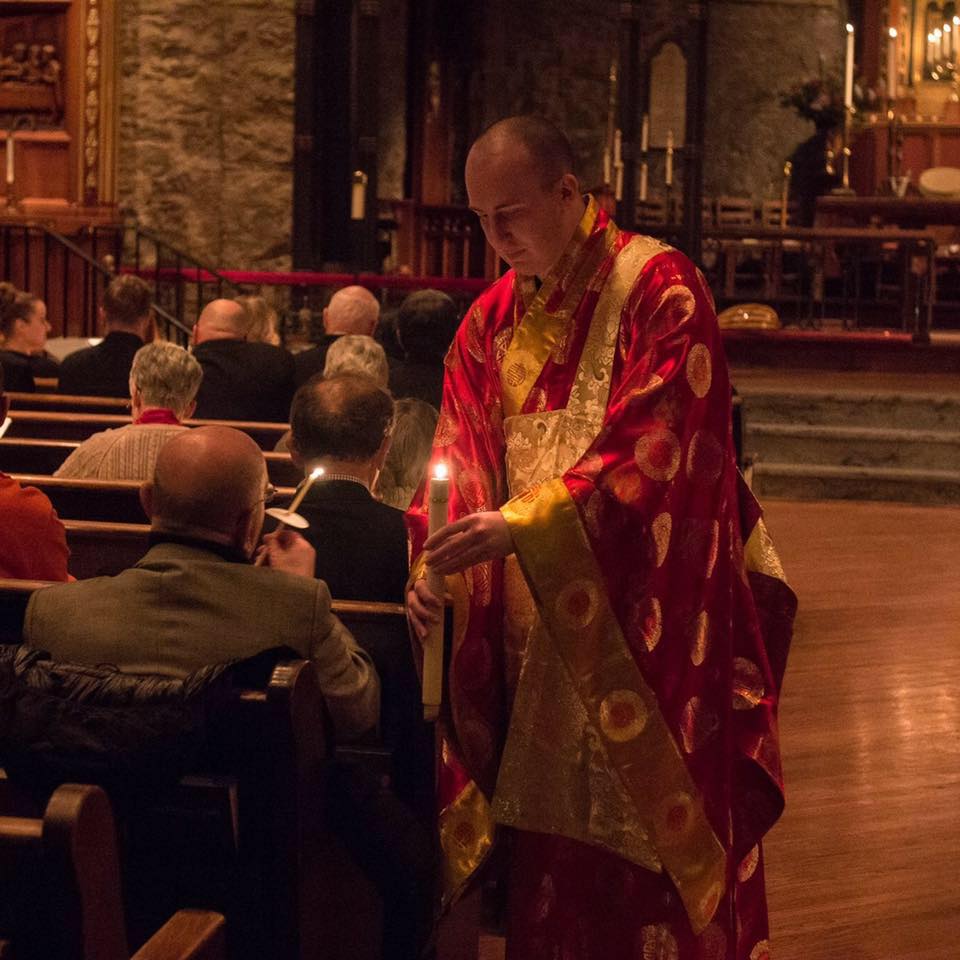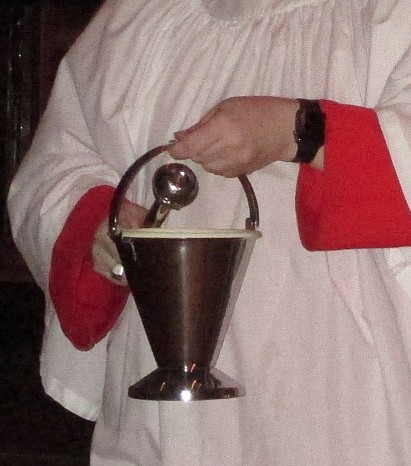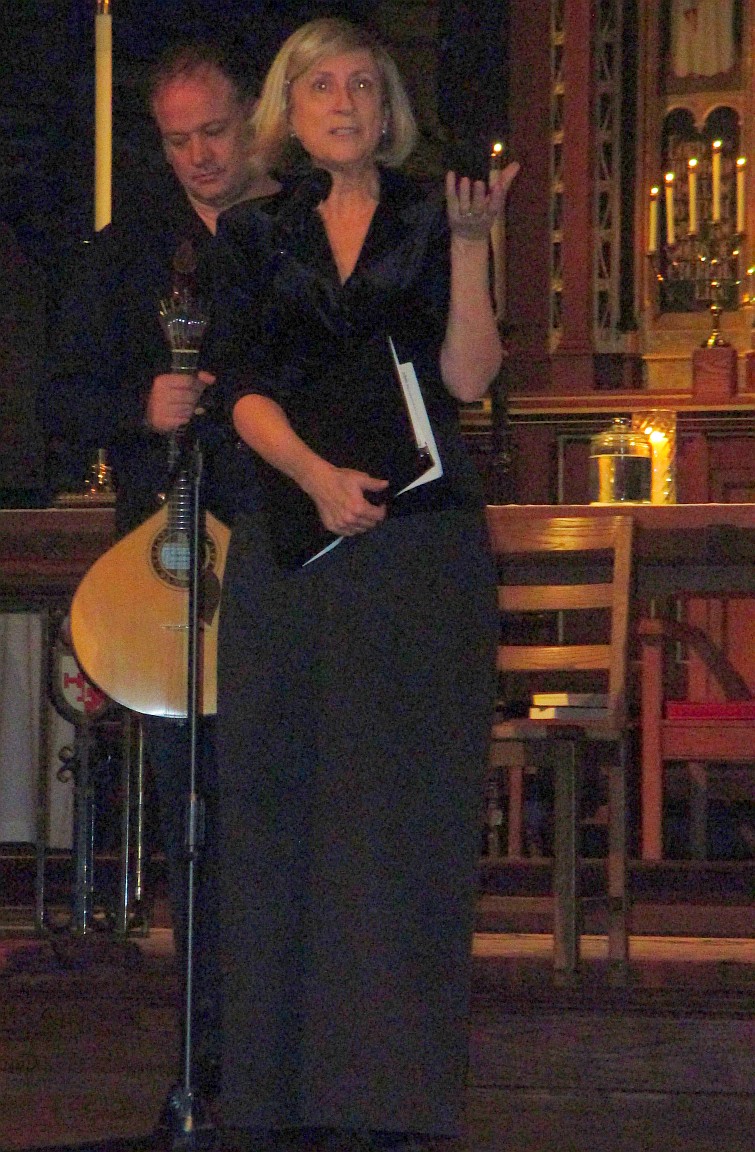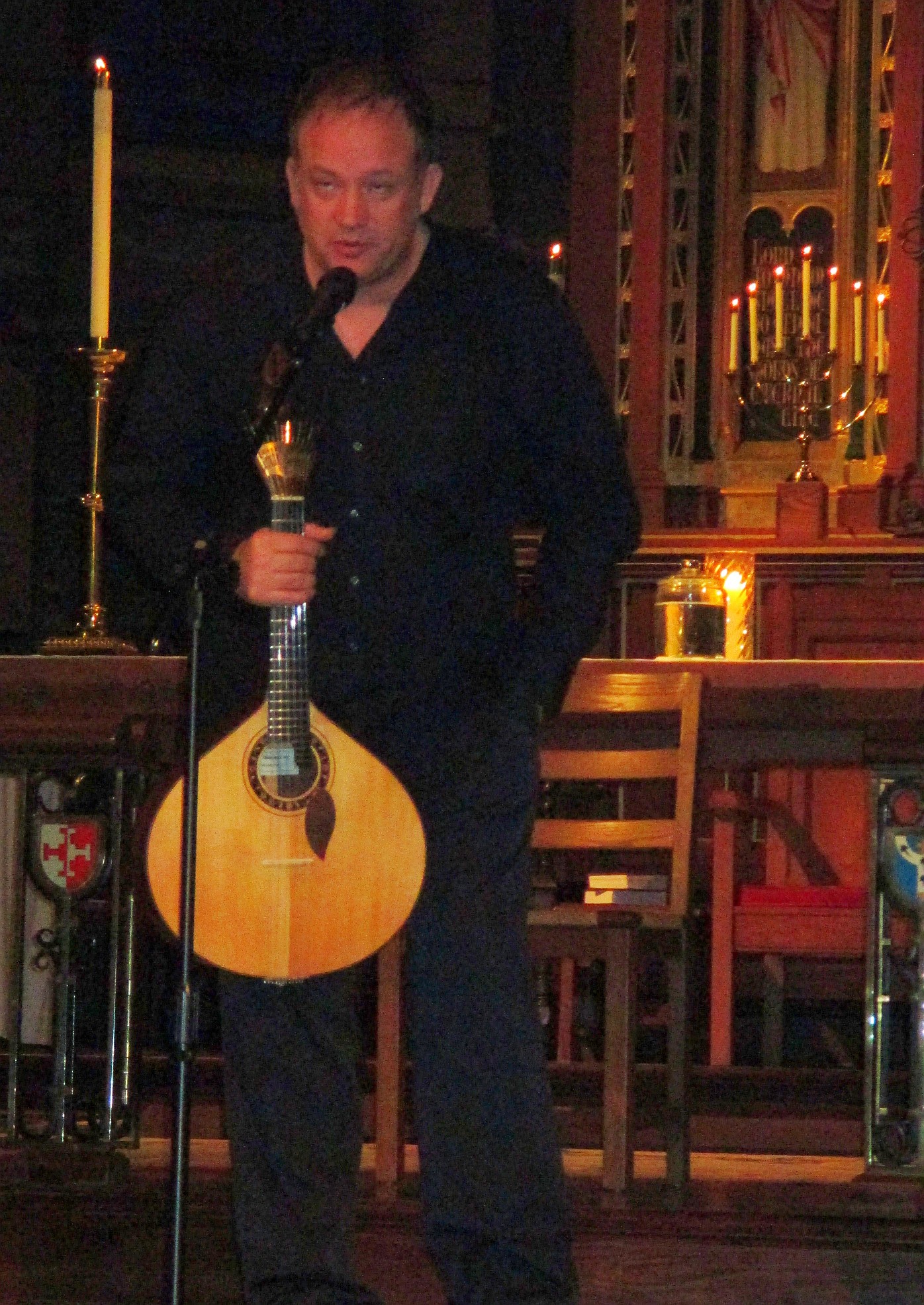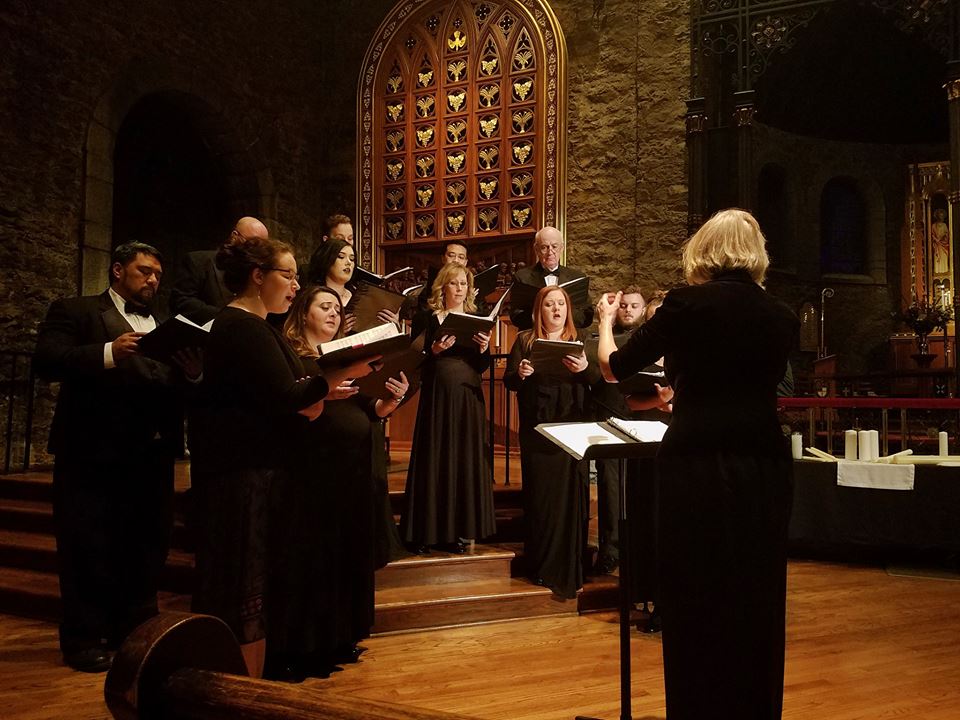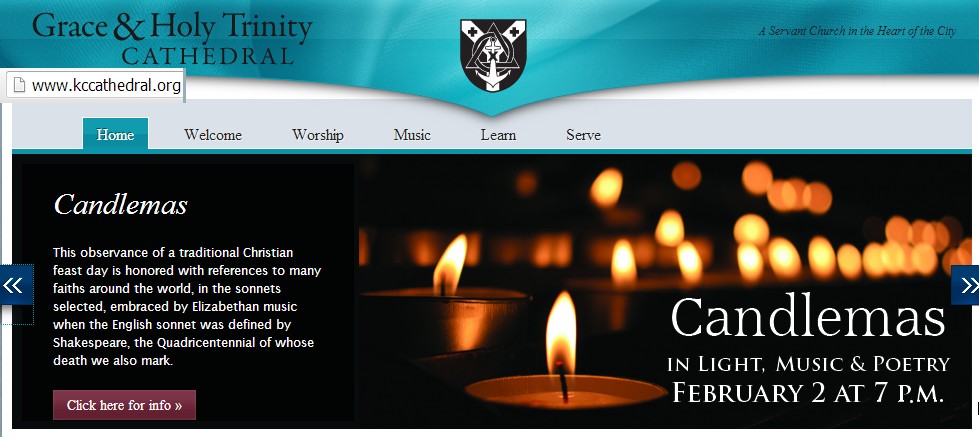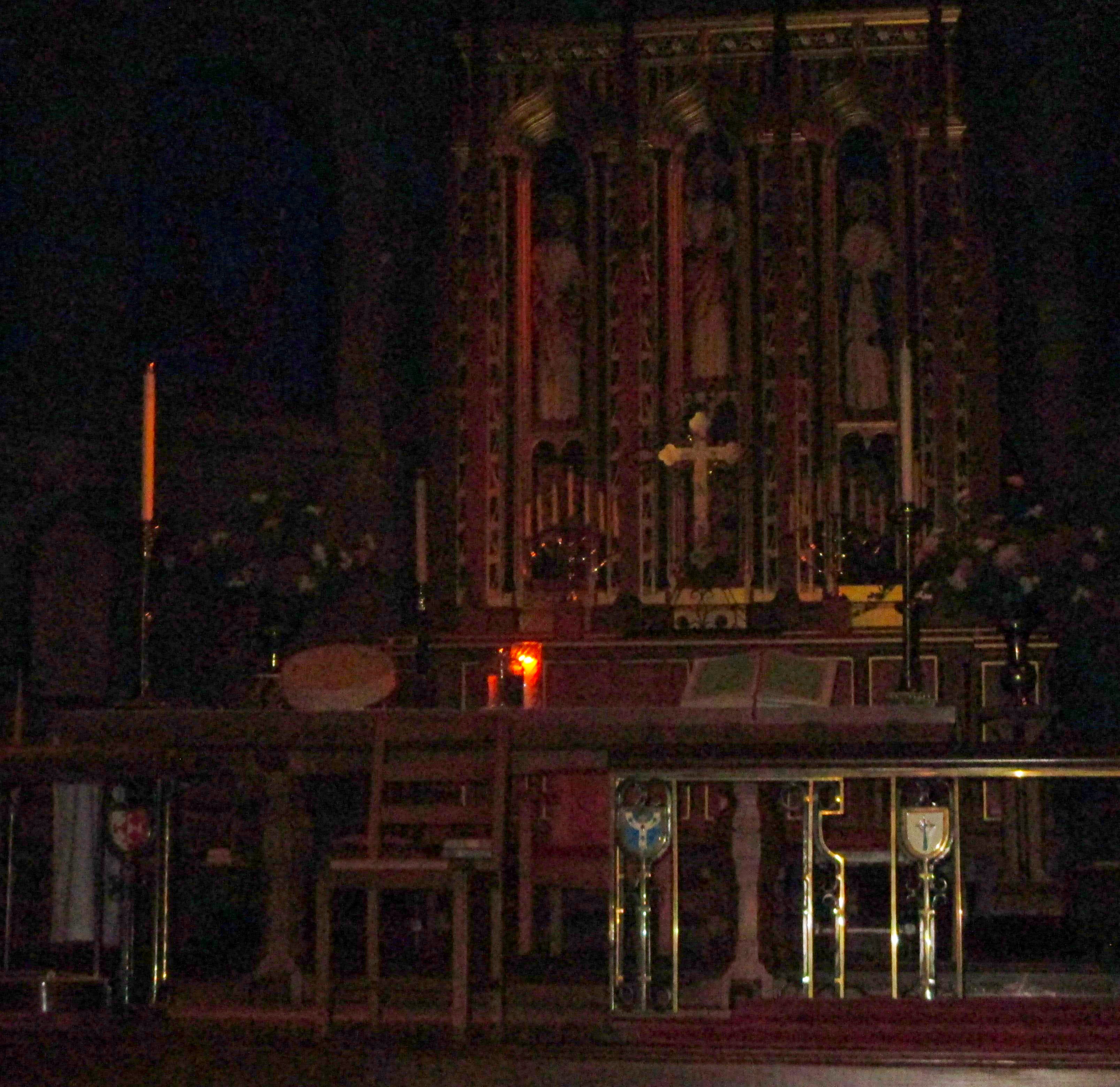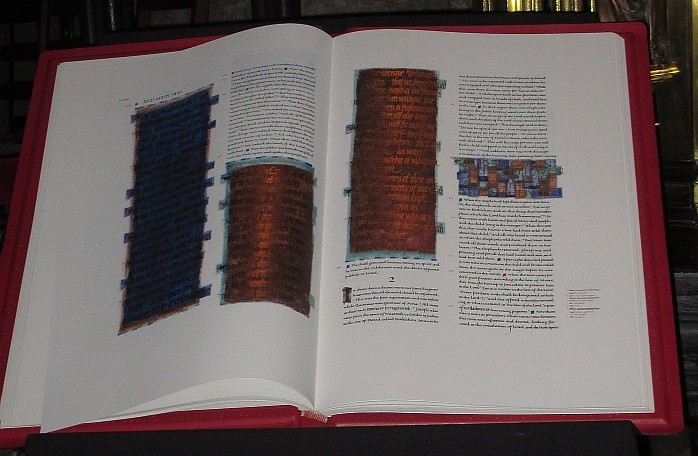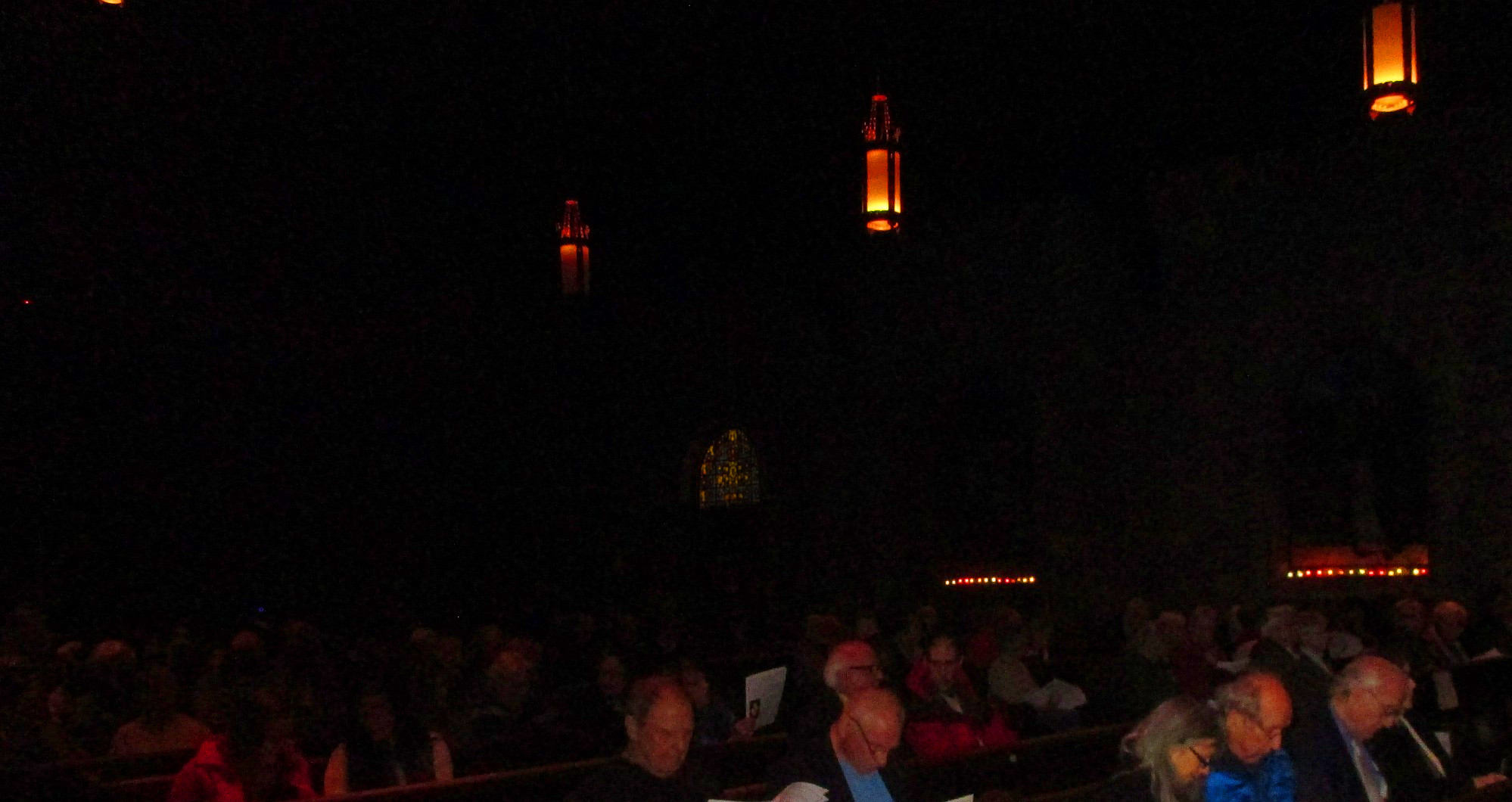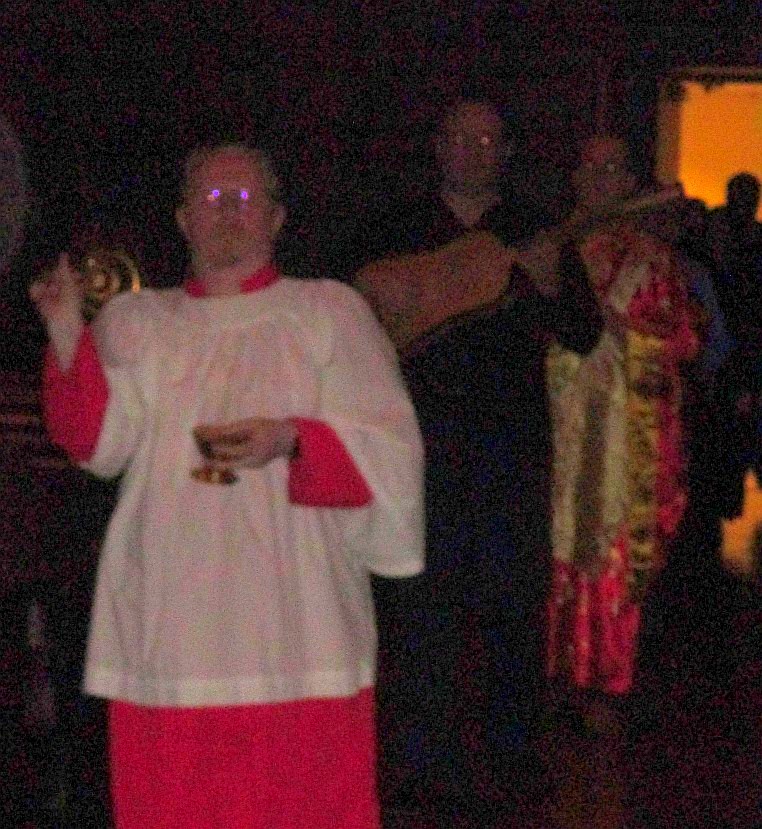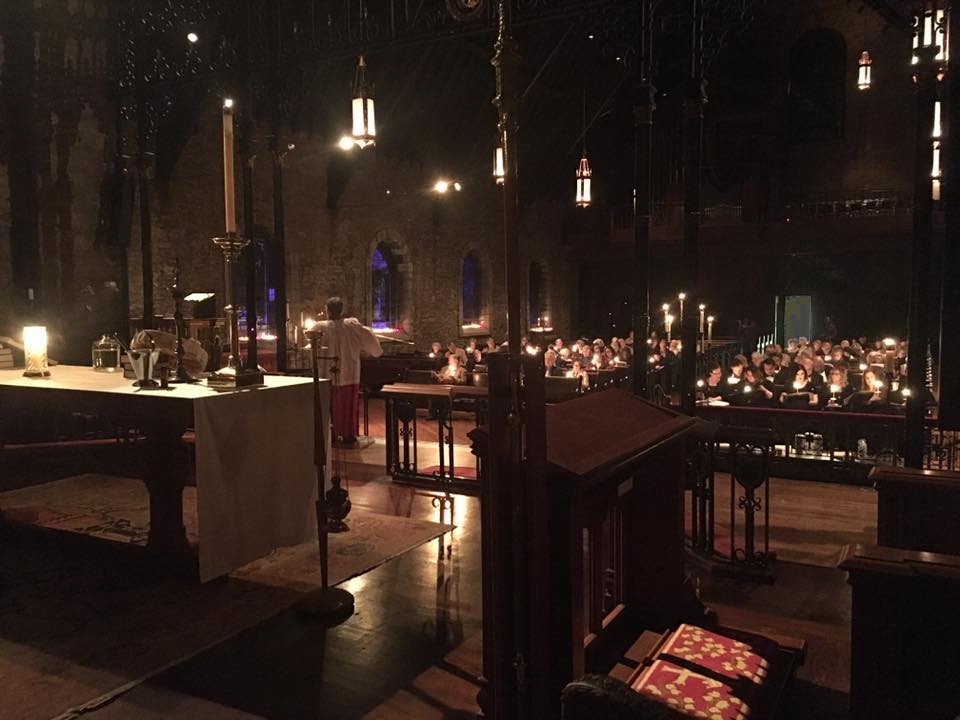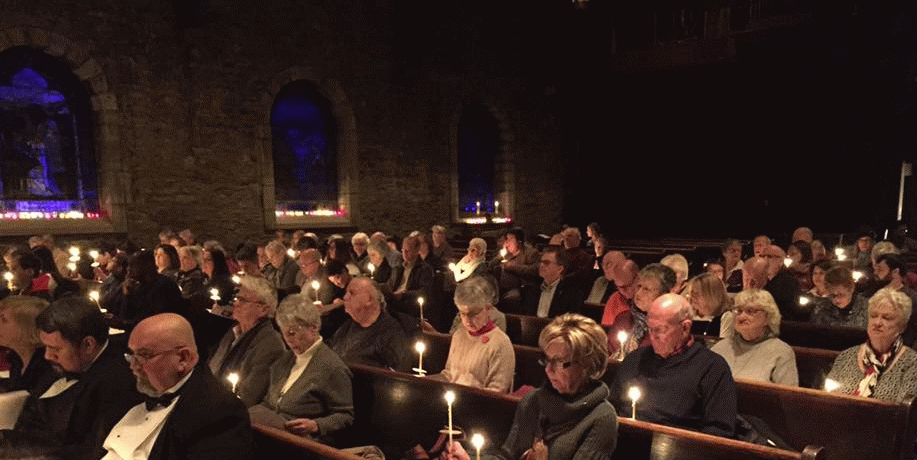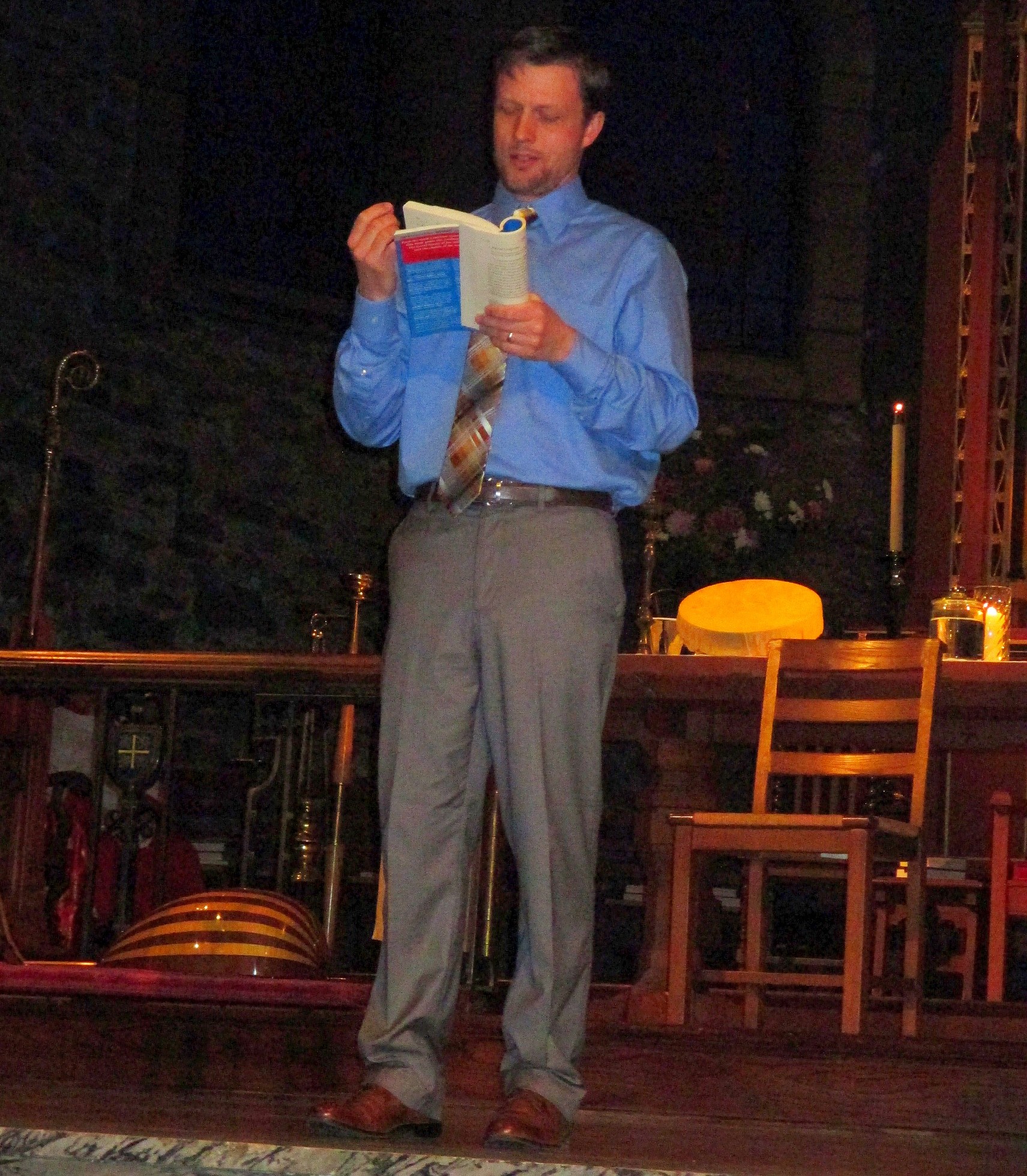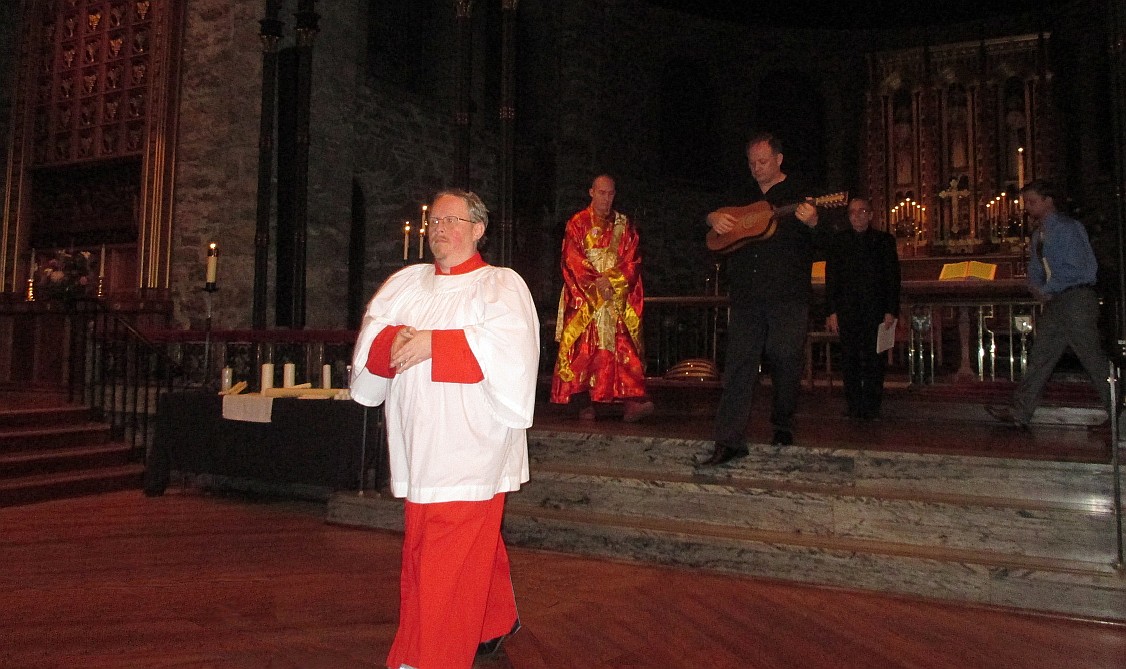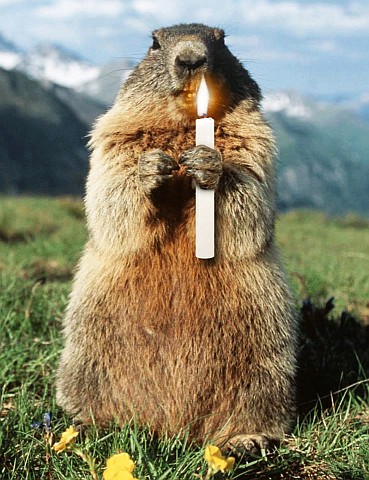|
REPORT
FOR THE INTERFAITH COUNCIL
“Candlemas: In Light, Music,
and Poetry” invited those at Grace and Holy Trinity Cathedral the evening
of February 2, 2017, to enter sacred space and time. The dimly lit edifice
showcased sacred items from many faiths. Around a single lit candle illumining
a jar of Interfaith Waters of the World were a Hindu oil lamp, an American
Indian drum, and a Qur’an opened to Surah 24 An-Nur, “Light.” Such
items offered homage to the importance of light in all the world religions.
Acolyte Curtis Hamilton led
the procession of performers from the back of the nave, swinging a thurible
of incense from the Enryaku-ji Buddhist Temple in Mt. Hiei, Japan, where
Vern Barnet studied as a young man. He was followed by Kansas City’s world-renowned
instrumentalist Beau Bledsoe playing the oud, the Most Venerable Sunyananda
Dharma representing Buddhism and other faiths, actor Matt Schwader, Barnet,
Dr. Rebecca Johnson, director of the Sacred Arts Chorale, and the singers.
Using the flame from the single
candle placed on the Holy Table, Dharma and Barnet proceeded to light the
many other candles held by the audience in the nave. The acolyte lit the
many candles in the chancel, including two menorahs, recognizing the Jewish
setting of the Presentation in the Temple in Jerusalem.
Mary DeVeau led a prayer
blessing the candles. Recited in unison, it was composed by Barnet
for the occasion. Mark Wasserstrom later commented, “The references to
various religious traditions makes the prayer universal and inclusive.
As a Jew, I felt more welcomed in the Episcopal setting.” John Gregory
agreed: “The wide range of the world’s religions, each with its essential
symbolic use of light, were brought together nicely by the venue itself
and by the light we shared with one another from our candles.”
The evening continued with
an eloquently intertwined performance of music and sonnets. Beau Bledsoe
played music from the baroque era on various string instruments and the
13 voices of the Chorale performed the complete William Byrd Mass for
Four Voices. Alternating with the musical offerings, Barnet briefly
introduced each of nine sonnets to assist the audience in navigating their
complexities, which were then performed by actor Matt Schwader, from Barnet’s
new book, Thanks for Noticing. For Donna Ziegenhorn, with Matt’s
readings, the sonnets “absolutely came to life, jumped off the page through
his talent, skill, and heart, moving me and at times amusing me, too. Who
will ever forget ‘My skin still works’?”
As the candles were extinguished,
the audience was sprinkled with the Interfaith Waters, reminding us that
our little lights can be extinguished, but the Light Invisible pervades
the universe and is a persistent grace.
The responses to Candlemas
have noted the eloquence, beauty, and atmosphere of the program. Everyone
seemed to find particular components of the evening that spoke profoundly
to them within their own backgrounds and faith traditions. Scott Martinez
puts it quite simply: “We are all human beings on the same rock and are
all affected by the same light.”
Geneva Blackmer
ADDITIONAL
DETAILS
Additional Planning and
Program Details
* After Christmas, the Tivoli
Theaters showed a slide promoting the Candlemas program before every film.
An announcement to a CRES MailChimp list was emailed.
* The Kansas City Star printed
a nice preview by Patrick Neas the Sunday before the performance.
* Although an admission charge
of $10 was suggested, admission was free. The budget, including in-kind
contributions, was about five thousand dollars. With advance subscription
and contributions at the door, it was possible to make a small gift to
the Cathedral for its support and hospitality.
* As folks entered the Cathedral,
they received heart-shaped, red-wrapped chocolates contributed by André’s
Confiserie Suisse and copies of the 8-page color program.
* The gathering of about 150
people on a beautiful February evening was welcomed by the Cathedral Dean,
the Very Reverend Peter DeVeau.
* Since William Byrd was a
recusant Roman Catholic during the Queen Elizabeth’s reign, his Mass seemed
to have been originally sung as part of a secret worship service; so it
is a special pleasure to celebrate advancing religious embrace by performing
it in the setting of an Episcopal Cathedral as a House of Prayer for All
People.
* The program concluded with
the performers recessing as Beau Bledsoe played the same piece with which
they processed.
* The Cathedral Bookstore
was open after the event, and copies of Thanks for Noticing were sold.
Since the copies were donated to the Cathedral, 100% of the price benefited
the Bookstore.
The Printed Program
* In addition to outlining
the 92-minute performance with the prayer blessing the candles, the printed
program included instructions for audience candle-lighting; commentary
about William Byrd and his Mass for Four Voices; the history of the Candlemas
festival in pre-Christian and Christian times and the story of the Presentation;
a photo of the Presentation Window in the Cathedral; bio-sketches of the
performers; introductions to the nine sonnets read corresponding to sections
of the Mass.
* The last page included acknowledgments
of the many people in many roles who made the event possible, including
the Benefactors, volunteers, and the staff; information about the
Cathedral and the Saint John’s Bible displayed during the performance;
a description of the Greater Kansas City Interfaith Council, the cooperating
partner for the event; and a history of the collection of Waters of the
World.
Comments and Evaluation
* While at least one person
commented that, as a way to recreate the pre-electronic time of Shakespearean
England, he appreciated the spare use of sound amplification in addition
to the use of candles, others complained that they could not always hear
the brief interviews of the performers early in the program and had difficulty
in hearing the introductions to the sonnets. (While the printed program
encouraged folks to sit in the front part of the nave by stating that “most
of the program is not amplified,” the crowd was larger than expected and
folks arriving later had to sit further back.)
* A range of opinion was expressed
about Prologue interviews. For many, the extensive printed program was
sufficient, and some found the explanations especially helpful. For others,
the interviews lessened or interrupted the sense of the flow within sacred
space and time.
* One person exclaimed to
the poet that the evening’s had an arc beginning with the youthful invitation
of the first sonnet through the troubles and joys of life to the somber
meditation on death and the love that survives in the final sonnet. “How
lucky you are to have lived long enough to experience these changes and
to write about them!”
* Many people said that they
were surprised at how well the Elizabethan period music and the contemporary
sonnets were integrated. Barnet responded, “They both pointed toward the
sacred. The language of the sonnets is often indebted to this time in the
development of English, and particularly to Anglican writers, and most
especially the Book of Common Prayer which is specifically cited and quoted.”
* Musically literate people
who had never heard a Mass by William Byrd before expressed delight in
having this opportunity.
* Some who had never been
to the Cathedral returned the following Sunday for worship.
* Other comments received
by email are represented by those here, used with permission, www.cres.org/Candlemas/CandlemasComments.html.
Blessing of candles
borrowing phrases from TS Eliot
As our light illumines one another,
let us join our voices together:
O LIGHT INVISIBLE, too great for mortal vision,
in the midst of the world’s tumult,
from uncertain travels in hope’s rickety wagon,
through the darkness of chance and mishap—
we bring flames of the world’s faiths
to fill the night, to answer the darkness,
to remind us of the INVISIBLE FLAME,
too bright for mortal vision, always with us.
As in the Christian story the infant Jesus was
presented in the Temple
and called a Light,
as in Jewish faith candles mark the Sabbath,
as in the Hindu faith Divali lights assure,
as in the Qur'an Allah is called the Light,
as the Buddha means the Enlightened One . . .
as these and every other faith seek and give light,
O LIGHT INVISIBLE, too great for mortal vision,
Bless us and these candles, that we may WITNESS
love’s light growing bright within and about us.
For these little lights that we can see and carry,
we give thanks for you, O LIGHT INVISIBLE.
If you are interested in telling us about your Candlemas
experience, please send us an email: vern@cres.org --
We'd value any comment you might make, and we'd certainly be grateful for
any responses to any of the following:
1. Overall, how would you describe your experience
of "Candlemas: Light, Music, and Poetry"?
2. How did the environment -- the Cathedral setting,
the dim lighting as you entered, the candles, the incense, the sprinkling
with waters from around the world, the 8-page program, objects from the
world's religions on the Holy Table, the procession and recessional --
affect your enjoyment of the evening? Please mention specifically if any
of these elements were especially meaningful to you.
3. In the prayer spoken by the audience to bless
the candles, how did you feel about including many of the world's religions
with their references to light?
4. The performers included the Sacred Arts Chorale,
musician Beau Bledsoe, and actor Matt Schwader reading sonnets by Vern
Barnet, who introduced them. What stands out for you, surprised you, or
added value to your experience?
5. The intent was to provide a sense of sacred time
and space, and to enhance individual and community spirit as we carry light
forward. How did the evening fail or succeed?
6. To our knowledge, never before has a Mass been
paired, movement by movement, with sonnets from a book arranged by movements
of the Mass. Did the flow of music and readings seem jumbled or did it
create an arc or direction that seemed fulfilling?
7. If you enjoyed the evening, do you have ideas
or locations where another use of Vern's sonnets might be employed?
8. May we quote you by name?
RESPONSES APPEAR
HERE
|
